Apple in October announced an M3-powered 24-inch iMac, as well as new 14-inch and 16-inch MacBook Pro models with M3 series chips. So when will the rest of Apple's Mac lineup be updated to the latest M3 processors, and will they be worth the wait?
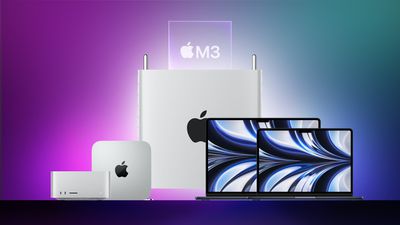
Now that Apple's "Scary Fast" event has passed, attention naturally turns to the other Macs in the company's lineup and where they might fit into Apple's M3 roadmap. Here's what the latest rumors say.
M3 MacBook Air
Apple sells three versions of MacBook Air: A cheaper previous-generation 13-inch model with M1 chip, and 13-inch and 15-inch models equipped with the newer M2 chip. The question is, when will Apple discontinue the M1 MacBook Air and replace its top-of-the-line 13-inch and 15-inch machines with M3 equivalents?
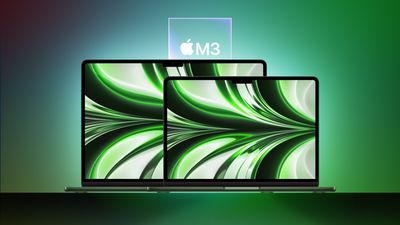
The existing 15-inch MacBook Air arrived earlier this year in June, which is not that long ago in terms of Mac update cycles. However, Apple released the M2 13-inch MacBook Air back in June 2022. It is now the oldest Mac in Apple's current crop, having not been updated in over 480 days.
According to Bloomberg's Mark Gurman, Apple has 13-inch and 15-inch M3 MacBook Air models in development, and both are said to be scheduled for release sometime in the first half of 2024. Both models are said to have reached engineering verification testing (EVT), an early production testing phase on prototype devices. The M3 chip used in the Airs is expected to have similar CPU and GPU core counts as the M2 chip in the current models.
Given so much time has elapsed since the current 13-inch MacBook Air was launched, it might seem safe to assume this model will be the next beneficiary in line for Apple's M3 chip. However, Apple's roadmap for Apple silicon appears to be partly dictated by supplier production capacity, so we could see either one model launched first or both 13-inch and 15-inch models launched in tandem.
Gurman says the next-generation MacBook Airs are on schedule for launch between the spring and summer of next year at the earliest, which could also mirror the time frame of the current models' launches that took place at WWDC in June 2022 and 2023.
Mac Mini
Apple announced M2 and M2 Pro Mac mini models in January, just over 280 days ago, but Apple could be already testing an M3 Mac mini, according to Gurman.
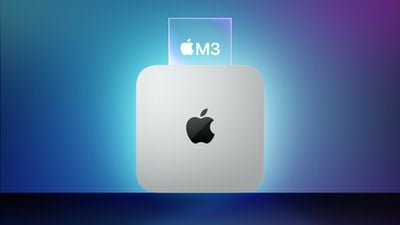
In August, signs of an unknown "15,12" Mac machine were found in developer code, with the Mac featuring an 8-core CPU (consisting of four efficiency cores and four performance cores), 10-core GPU, and 24GB RAM. Based on the similar specifications to the base M2 Mac mini (bar the existing model's 8GB RAM as standard), Gurman believes it represents a next-generation Mac mini.
Gurman previously said he was not expecting an M3 version of the Mac mini to launch until late 2024, but as it is already in testing, it could potentially be unveiled sooner.
Mac Studio, Mac Pro
Apple updated the Mac Studio and Mac Pro with M2 series chips in June of this year. Mac Studio models come with either the M2 Max or M2 Ultra chip, while the Mac Pro has adopted the M2 Ultra.
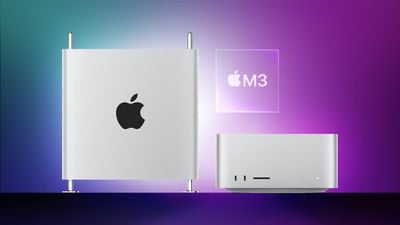
Both Macs are considered to be in the middle of their product cycles, and there are as yet no reliable rumors about when more powerful M3 versions of either machines will be launched. But if Apple is committed to an annual upgrade cycle, we could see them in June 2024.
13-inch MacBook Pro
Apple has discontinued the 13-inch M2 MacBook Pro – and along with it the Touch Bar – replacing it with a 14-inch model that's equipped with a next-generation M3 chip.
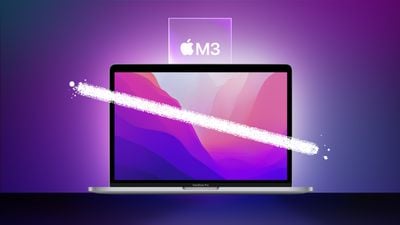
Apple says that the 14-inch M3 MacBook Pro is up to 60 percent faster than the 13-inch MacBook Pro with M1. The M3 14-inch MacBook Pro also comes with a number of other benefits that make it worth the upgrade for anyone with the original 13-inch machine. So do not expect to see an M3-powered 13-inch MacBook Pro anytime soon, if ever.
M3 Performance Gains to Expect
The M3 series of chips are built on TSMC's 3-nanometer process, bringing performance and efficiency improvements over Apple's previous M2 chips, which are based on the earlier-generation 5-nanometer process. Since its transition to Intel chips, Apple's strategy has been as follows.
In the M1 and M2 series of Apple silicon, each generation has a baseline version, then a "Pro" chip with more cores for its central processing unit and graphics. Next is an even more powerful "Max" version that doubles the number of graphics cores. Lastly, an "Ultra" model doubles the number of main processing cores and graphics cores found in the "Max." Things are slightly different with the M3 series, as explained below.
In terms of the actual real-world gains, this of course depends on the M3 processor version, coupled with the particular Mac model and other component factors like RAM and thermal dissipation. Nevertheless, all of Apple's M3 chips also boast GPU improvements not found in the M2 series, including Dynamic Caching, hardware-accelerated ray tracing, and hardware-accelerated mesh shading.
M3
Apple's base M3 chip will likely feature in future MacBook Air models, as well as an updated lower-end version of the Mac mini. At least in the MacBook Airs, the M3 chip is expected to have similar CPU and GPU core counts as the M2 chip in the current models, but that could be true for the Mac mini as well.
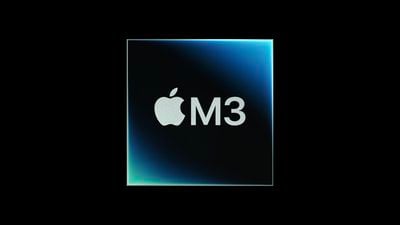
Based on early benchmarks, the M3 chip has single-core and multi-core scores of around 3,000 and 11,700, respectively. The standard M2 chip has single-core and multi-core scores of around 2,600 and 9,700, respectively, so the M3 chip is up to 20% faster than the M2 chip, which is what Apple claimed during its "Scary Fast" event in October.
M3 Pro
It's not yet clear what performance gains to expect from the M3 Pro chip compared to the previous M2 Pro generation, but it is likely to be relatively minor. Bear in mind that when Apple announced the M3 series, the only slide that it didn't show is how much faster the M3 Pro is than the equivalent M2 chip.
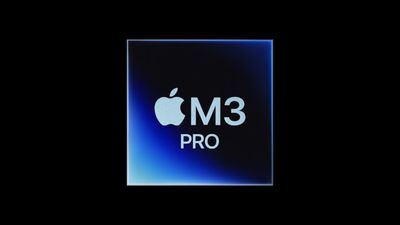
The M3 Pro and M2 Pro chips in the 16-inch MacBook Pro have 12 CPU cores, but the M2 Pro actually features one additional GPU core over the M3 Pro. Despite that, Apple claims it is 10 percent faster than the M2 Pro GPU and 40 percent faster than the M1 Pro GPU.
M3 Max
With the M3 series, Apple deviated slightly from the doubling strategy it followed with the M2 Max by adding several more CPU cores to the M3 Max compared to the M3 Pro. Early benchmarks indicate that Apple's new M3 Max chip in the 16-inch MacBook Pro is around as fast as the M2 Ultra chip used in the current-generation Mac Pro and the higher-end Mac Studio. In other words, the M2 Ultra Mac Pro is being outperformed by what is on paper a lower-end machine, just four months after it was released.
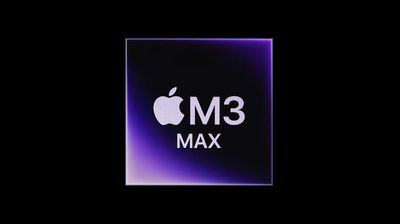
Note that the new 16-inch MacBook Pro starts at $3,499 in the U.S. when configured with the M3 Max chip, while the Mac Studio with the M2 Ultra chip starts at $3,999, so you can effectively get the same performance for $500 less by buying the new 16-inch MacBook Pro, which also includes a display, keyboard, and trackpad.
Will this performance imbalance alone encourage Apple to bring forward the launch of M3-powered Mac Studio and Mac Pro models? Unlikely. But we can always hope.
M3 Ultra
Having not yet been announced, the M3 Ultra chip is something of an unknown quantity. The existing M2 Ultra encompasses two M2 Max chips for double overall CPU and GPU performance, as well as twice the memory bandwidth (800GB/s), so it would seem safe to expect Apple to follow the same strategy as it did with the M3 Ultra, with similar performance gains over the M3 Max from Apple's next-generation high-end M3 Ultra chip.
In a small deviation, Apple did add several more CPU cores to the M3 Max compared to the M3 Pro. However, if Apple continues to double both the CPU and graphics configurations with the Ultra, the M3 Ultra could end up having 32 CPU cores and 80 graphics cores.























